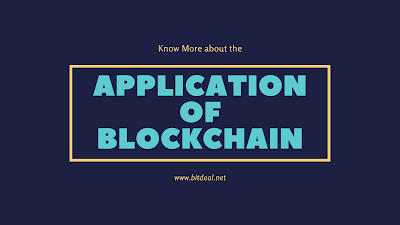Potential Opportunities Metaverse Theatre Development Offers For The Business & Entertainment Industry
Introduction
The concept of the metaverse has gained significant attention in recent years, promising a virtual space where people can interact, create, and explore. While the metaverse has primarily been associated with gaming and social experiences, there is a growing realization of its potential in other sectors, such as business and entertainment. This blog explores the potential opportunities that metaverse theatre development offers for the business and entertainment industry, revolutionizing the way we engage with live performances and opening up new avenues for creativity and audience interaction.
Redefining the Theatre Experience
Metaverse theatre development has the potential to redefine the traditional theatre experience. By leveraging virtual reality (VR) and augmented reality (AR) technologies, theatre performances can be transformed into immersive experiences that transcend physical boundaries. Audiences can be transported to virtual stages and interact with actors and the environment in ways that were previously unimaginable. This shift opens up new creative possibilities, enabling directors and performers to craft unique narratives and experiment with interactive elements. From exploring fantastical worlds to being part of historical events, metaverse theatre provides an unprecedented level of immersion and engagement.
Global Accessibility and Inclusivity
One of the key advantages of metaverse theatre development is its potential for global accessibility and inclusivity. Traditional theatre often requires physical presence at a specific location, limiting access for individuals in remote areas or with mobility constraints. With the metaverse, anyone with an internet connection and compatible devices can participate in live performances, transcending geographical barriers. This accessibility also opens up opportunities for diverse voices and perspectives to be heard, fostering inclusivity within the theatre community. People from different parts of the world can connect and share their love for theatre, breaking down cultural barriers and promoting a sense of unity.
Enhanced Audience Interaction
Metaverse theatre development introduces a new level of audience interaction. Virtual performances can incorporate real-time feedback mechanisms, enabling viewers to actively participate and influence the narrative. From voting on plot choices to engaging in live chat with actors, the metaverse allows for a dynamic and participatory theatre experience. This enhanced interaction not only deepens audience engagement but also provides valuable insights for performers and creators to refine their craft based on real-time feedback. The audience becomes an integral part of the performance, making each show a unique and collaborative experience.
Monetization and Revenue Streams
The metaverse presents new monetization and revenue streams for the business and entertainment industry. Virtual theatre performances can be ticketed events, with audiences purchasing virtual tickets to access live or recorded shows. Additionally, virtual spaces within the metaverse can be utilized for advertising, sponsorships, and product placements, offering brands a unique platform to engage with audiences. NFTs (Non-Fungible Tokens) can also play a role, allowing for the ownership and trade of virtual assets, such as exclusive show memorabilia or virtual backstage passes. These innovative revenue models create opportunities for sustainable growth and financial success in the metaverse theatre industry.
Collaborative Opportunities
Metaverse theatre development fosters collaborative opportunities between artists, technologists, and business professionals. Traditional theatre production often requires significant investments in physical infrastructure and logistical coordination. In the metaverse, these barriers are significantly reduced, allowing for greater experimentation and collaboration. Theatre companies can collaborate with digital artists, developers, and designers to create visually stunning and immersive experiences that push the boundaries of traditional theatre. The convergence of diverse skill sets leads to groundbreaking productions, where imagination knows no bounds.
Data-Driven Insights and Personalization
The metaverse provides an abundance of data that can be leveraged to gain insights into audience preferences and behaviors. By analyzing data collected from audience interactions and preferences, theatre creators can tailor experiences to specific demographics or personalize performances based on individual preferences. This data-driven approach can lead to more targeted marketing campaigns, improved audience retention, and the ability to adapt and evolve productions based on real-time feedback. The metaverse becomes a playground for experimentation and innovation, where data acts as a compass for success.
Conclusion
Metaverse theatre development offers a world of potential opportunities for the business and entertainment industry. By embracing the metaverse, the theatre experience can transcend physical limitations, providing global accessibility, enhanced audience interaction, and new revenue streams. It opens doors for collaborative creativity and empowers artists and performers to redefine the boundaries of traditional theatre. As technology continues to advance, the metaverse presents an exciting frontier for the convergence of business, entertainment, and immersive storytelling. The possibilities are vast, and the future of metaverse theatre holds the promise of transforming the way we engage with live performances. With metaverse theatre, the stage is set for a new era of artistic expression and audience engagement, where the imagination knows no limits.



.jpg)
Comments
Post a Comment